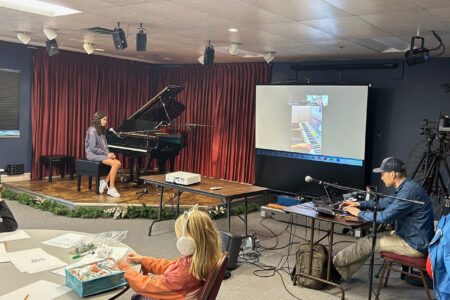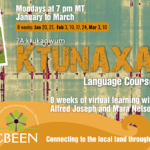TALES AND LEGENDS OF THE MOUNTAIN KINGDOM: Alex Pitt, The Cow Exculsion Bylaw, and farmers' markets...1920s style
Let’s move out of the Mountain Kingdom’s boom era for a time and onto something post boom. In our long and illustrious history, Rossland has had its share of mayors who have left an indelible mark on our town. Ron Shearer, a native Rosslander who has written extensively on the history of our mountain town and given talks here based on his research, has written extensively about an ancestor of his, Alex Pitt, who was a long-time alderman and two-time mayor.
I thought his story was worth telling because Pitt’s terms in office saw significant changes to Rossland’s landscape as he was very politically active in Rossland’s post boom times. I gratefully acknowledge Mr. Shearer’s research as my prime source for this article.
Alex Pitt was Shearer’s aunt’s father. One of ten children, he was born in Beachburg, Ontario on August 23, 1873. Sometime before 1895, he migrated west to Sudbury, Ontario, where he most likely took up mining. In May of 1895, he married a local Sudbury girl, Sarah Hambley, in that city. She was the daughter of British immigrants who came to Sudbury via the States. Alex and Sarah had a daughter in Sudbury named Hazel in December of 1896.
The young Pitt family was soon on the move again, arriving in Trail sometime before June of 1898. In the supplementary voters list produced in June of that year, Alex Pitt was listed as a gold miner. Alex and Sarah’s grandson, Ken Smith, remembers an interesting piece of the family’s history being told to him, and that was that the little family arrived in Trail on a sternwheeler. It’s not recorded in the family history where this sternwheeler had arrived from, but it had to come either north from the States, or from points north on the Columbia like Revelstoke.
Whatever the case, it appears that the allure of gold riches in Rossland was what brought the Pitts to the town to begin with. They would have five more children in Rossland, the first born in the Mountain Kingdom being a son, Colenso, who came along in February 1899. He would die tragically young at the age of 36 due to a long illness.
It was in 1913, when the Pitts had young children in the local school system (this will be significant later), that Alex decided to enter into local politics. Even though the population of Rossland was very low – the 1911 census counted the population at 2800 people – the town was divided into two electoral wards, the East Ward and the West Ward. Each ward got to elect three aldermen, and the mayor was elected from both wards.
What I found interesting was that the terms were all for one year, not the usual four we see nowadays. That’s a lot of elections! It must have kept people on their toes quite a bit more. Alex Pitt lived in the East Ward and ran for an alderman seat, and won. It would be the beginning of quite a long career in municipal politics.
At that time, Rossland was in a slump. Mining profits were dropping off as the price of precious metal dropped, and some of the mines were just not producing much anymore to begin with. In this article, I have more details about what life was like in post boom Rossland. As Shearer says in his research, “city politics were about such things as sanitation, water supply, lighting for the streets, the safety of the milk supply (not pasteurized of course), cows wandering the city, sleigh riding on the streets – and booze, gambling, and prostitution.”
Pitt would serve as alderman from 1913 – 1918. In 1919 he was elected by acclamation as mayor; the other runners might have been intimidated by his record as they all bowed out during the election. The next two years, 1920 and 1921, he was again elected by acclamation, and then in 1922 he had one opponent, whom he defeated by one whole vote. He was defeated in 1923, sat out the 1924 election, and unsuccessfully mounted a comeback as mayor in 1925. In 1926, he was elected alderman again, and got the position by acclamation each year between 1927 and 1930. 1931 would be his last election; he lost is alderman seat “quite decisively.”
In addition to being alderman and mayor, Pitt also was a school board trustee, on the Police Commission, which oversaw a two man police “force”, and the License Commission.
So what did Alex Pitt achieve in his years as alderman and mayor? That’s a long time to be involved in local politics and a lot of changes happened in Rossland during those 17 years he was in office.
I’ll touch on some of the more significant things that Ron Shearer mentions in his research notes.
First, there was the Cow Exclusion Bylaw of 1913, which was, according to Shearer, a huge political problem. There were cows all over the place, apparently, grazing here and there, relatively free. It’s quite a nice pastoral picture, actually, when you think about it. But it wasn’t fun for people living in Rossland at the time. Eventually, to sort out this problem, the Cow Exclusion Bylaw came into effect. This prohibited the keeping of cows, goats, and pigs within the city limits; they had to stay only in outlying areas. Diary owners were ticked, and continued to be for a few years. One man even went to prison over it.
Next, Pitt was in office during the WWI years, which saw a lot of turmoil in the Mountain Kingdom. At first, things were going well; despite volunteers going off to war, there wasn’t a labour shortage for the mines, which were suddenly busier because copper, used for munitions and a byproduct of gold mining, was priced at an all time high and in great demand. But as the war progressed, things got progressively grimmer. A coal miners’ strike in the Crowsnest devastated local mining and smelting production, necessitating the closure of the smelter down in Trail and nearly ending mining production in Rossland. The result was unemployment. After the war, inflation ballooned and the cost of living doubled.
In order to combat the high cost of basic groceries in Rossland, the Council decided to rent space downtown for a market, where local producers of food could sell their wares at a lower cost to citizens by eliminating the middleman. The city paid for the rental of the space, the heat, and the lighting. But while local farmers and ranchers were on board with this, they were not on board with allowing the men of the Chinese gardens to still peddle veggies door to door, thinking that this would decrease the white farmers’ profits. Council, however, voted to not prevent the Chinese peddlers from doing business, and the market opened September 16, 1919 in the Stone Block, at the corner of Columbia Avenue and Queen Street – pretty much next door to where our current farmers’ market runs. The popularity of the market was such that it needed to be opened a second day of the week, which it was, on Tuesdays. However, its popularity was short lived; by June 1920 the market was gone.
Pitt helped spearhead the building of the Rossland-Cascade Highway in the early 1920s when the Great Depression was hitting the area hard. More on that can be read here.
Pitt also thought tourism would be a boon for Rossland, and his council, in 1920, decided to build a campsite for tourists. This was located in what is currently Esling Park. It didn’t go very far as a tourist attraction, though.
There were some large infrastructure problems that also needed to be addressed in Pitt’s terms as mayor. Water was a continual concern, especially as the wooden pipes that had been used were on the verge of collapse in 1920. The pipes needed replacing, and the City approved $15,000 of debentures, which are like bonds, to fix the problems.
In 1921, the Pitt administration needed funds, and badly. They were faced with the choice of either raising property taxes (the city’s main source of income) or slashing its own expenses. They decided upon the later. According to Shearer, “Routine maintenance and repairs of sidewalks and buildings was curtailed, some workers were laid off, as were a fireman, a policeman, normal grants to regular charities and causes were denied, and the aldermen suspended their own salaries.” Who does that anymore?
Finally, Pitt was instrumental in helping to resolve Rossland’s school issue. Aging school buildings, overcrowding, and improper sanitary conditions were some of the problems faced during Rossland’s economic hard times during the later half of WWI. Recall that Alex Pitt had a bunch of school age children who attended local classes, so he had a vested interest in what was going on school-wise in town.
Pitt was elected to a two year term on the Board of School Trustees in 1917, the year that Central School was a hot issue. And it had long been an issue. Located at St. Paul Street and Fourth Avenue, the school was in terrible condition, and became the centre of a lot of political battling. Trustees wanted to move the school to a better location – St. Paul and Second Avenue – but the local politicians who would have to foot a great part of the bill wanted to build on the same location. The school board wanted a modern, brick building, but this was very costly. After a lot of haggling over splitting expenses, hiring and then firing an architect, proposals to scale down the school projects, referenda, it all became moot: the school burnt down in June 1917. It was probably arson, though that was not proven.
Alex Pitt, since he was on Council and the school board helped mediate the resulting brouhaha over where the new school should be built, and fought to have what would become MacLean School built in its current location, out of brick. He suggested to the City that it donate two lots for the school and helped secure the necessary funding. The public must have been happy, as they kept re-electing him.
He seems a significant character in the history of the town. I have no death information on him, however. There is no information about him online that I could find – not even a photo. If Ron Shearer hadn’t written about him for his own research purposes, I would never have known about him. And it seems strange that there isn’t anything around town named after Alex Pitt…

























